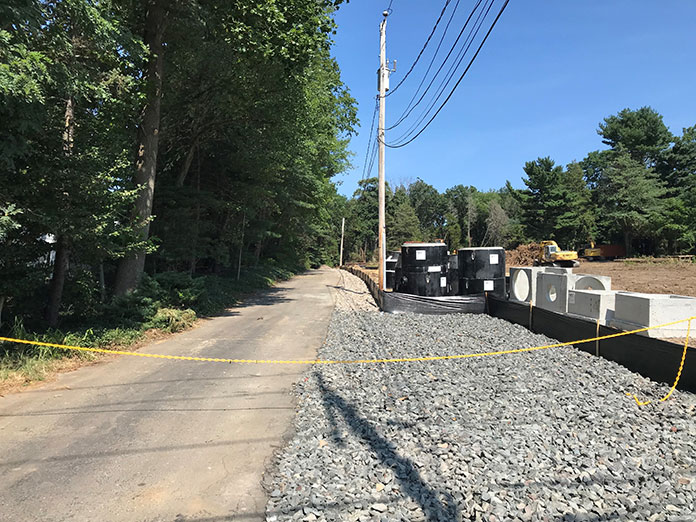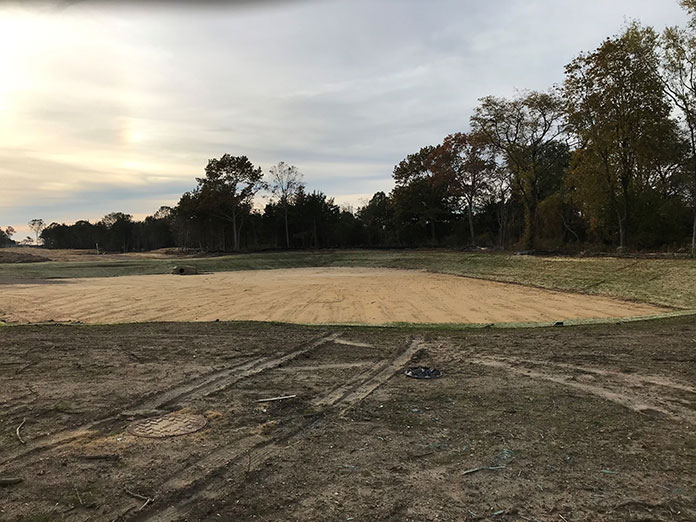
TOMS RIVER – The sights of development are pretty common in Ocean County. One day, there’s a stretch of woods. Then, suddenly, it’s gone. In its place is a sign advertising new homes.
Residents complain frequently about the increase in school taxes that these new homes will bring, and the increase of cars on the road. Yet, they decided that they would rather not have their taxes increase to stop development.
Taxpayers again shot down an increase to the open space tax. The tally was 14,551 votes to 11,314.
Taxpayers currently pay 1.5 cents per $100 of equalized valuation. The valuation is not what the house was purchased for; this is the assessment of each property based on current market values.
For example, if your property is valued at $200,000, you are currently paying $30 per year toward the township’s Open Space Tax. Voters were asked whether to raise the tax by 1 cent to 2.5 cents per $100 of valuation.
By voting to increase the rate of the Open Space Tax, the township’s budget to purchase open space would have increased.
Mayor Maurice “Mo” Hill had a few ideas of why people voted against it. Republican gubernatorial candidate Jack Ciattarelli ran an aggressive campaign against taxes; gas prices are ballooning at an alarming rate; and people in shore homes are worried that their taxes are going up from the township revaluation.
“It’s a bit of a surprise,” he said, given how much people are against overdevelopment, but in this political climate, coming in at the end of a bitter election cycle, people’s reactions are hard to predict.
“There’s other avenues” to protect land besides a local purchase made with open space tax funds, he said. “We will still continue to work with the county.”
Ocean County has its own open space tax. The difference is that it has more buying power since it taxes everyone in the county.
Hill said he directed Township Planner David Roberts to look at any parcel in town that is 10 acres or more – particularly in the northern portion of town. Once those areas are identified, the town can look at what other funding is available. The state has a Green Acres program, for example, that has purchased local property in the past.
When the Township Council decided to put the increase on the ballot, there was not a specific parcel made public. Mayor Hill had an interest in purchasing land in northwest Toms River because “that’s where most of the open space is left in town.”
“We certainly want to preserve property there,” he said of northwest Toms River. Another concern of his is an upcoming round of COAH.

COAH is the Counsel On Affordable Housing. A landmark lawsuit versus the town of Mt. Laurel ended with the State deciding that towns must provide places for people to live who make less money. Mt. Laurel had, according to the lawsuit, zoned the town so that only rich people could live there.
Every town in New Jersey has gone through a few rounds of COAH. This means that every few years, COAH decides, based on a formula, that a town needs to set aside a certain number of units for low-to-moderate income homeowners.
Those in favor of COAH have said that it has provided more affordable housing.
Those against COAH have said that it takes self-rule away from towns, forces development, hurts the environment, and doesn’t really provide for “affordable” housing because the state’s definition of “affordable” is different than the average person’s.
With another round of COAH coming in a few years, Hill said preserving land now would limit how many developments could be put in. Every development comes with it a certain percentage of COAH units.
Another challenge is that if a town doesn’t want a development, the developer can sue in what’s called a “builder’s remedy lawsuit,” basically using COAH to push their project through.
Toms River voters first approved the Open Space Tax in 2000 and taxes began being collected in 2001. In 2018, Toms River residents voted against a referendum that would have doubled the Open Space Tax rate to 3 cents. Hill said that in 2018 officials assumed the measure would pass and were surprised it didn’t, so in 2021 they would make more of an effort to educate the public.
The vote totals for this year are unofficial results until the county clerk certifies them at a later date.







